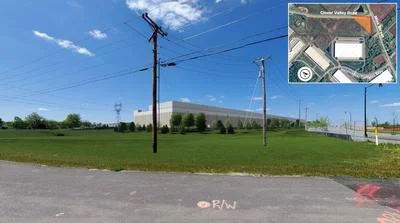Last month’s Focus on the Future event, hosted by Together Knox, provided Knox County residents with additional details about the proposed update to the county’s comprehensive plan, a long-term strategy for guiding future growth, development, and conservation across the county. For some, the event also raised questions about whether the plan will address their concerns or those of special interests.
The meeting, held on October 29, drew 96 attendees who wanted to learn more about the status of the plan’s development.
Jeff Gottke, president of the Knox County Area Development Foundation, explained that four local organizations had determined the existing plan needed an update “based on the plan outliving its usefulness and the changing conditions in the county.”
The organizations involved in the decision were the Area Development Foundation, the Regional Planning Commission, the county commissioners, and the city of Mount Vernon. They also determined that outside help was needed to develop the plan, so PlanningNEXT was hired for the job.
Jamie Green of PlanningNEXT, who led the workshop, said the plan would not impose regulations on the community, but it could lead to additional regulations from local governments within Knox County.
“There is no other place to pull together all of the components that are important to residents,” Green said. “It’s not a regulatory tool, but it is the legal foundation for regulatory tools.”
Some residents have expressed concerns about the transparency of the plan’s development process and its content. When planners allowed only a short window for online community input this summer, incoming county commissioner Drenda Keesee suggested more time was needed to ensure greater local participation.
“I suggested to the organizers and consultant at a Together Knox meeting to mail a survey to each household for a better response from the community,” Keesee said in an interview earlier this year. “I have seen this implemented in other counties. I was told there is not sufficient time to do so and the goal is to complete a 5-10 year plan for Knox County before the end of the year that would be ‘locked in.’ This concerned me.”
Knox County resident Karen Schmitt, who attended last month’s meeting, voiced similar concerns about whether the plan would reflect the wishes of the community.
“It appears many people want to protect the natural beauty, agriculture, farms, and rural landscape that makes Knox County what it is,” she said. “It seemed like Together Knox wanted that also, until the consultants who were hired for the project spoke. It felt like all decisions have already been made, and they were trying to convince the people in attendance, this was the plan and what the residents want. It felt very biased, and I left wondering how many residents are aware of these plans.”
At the meeting, Gottke explained that Together Knox had “gathered over 10,000 pieces of data from four major sources.” These included technical, demographic, and economic analyses, public input via the Together Knox website, interviews with 10 different stakeholder groups, and 35 small group meetings with various organizations around the county.
Resident Ben Dean, who was unable to attend the meeting but has been following the Together Knox process, expressed both appreciation and concern.
“I appreciate the efforts that county leadership has gone to solicit feedback and input from the citizens of Knox County during the Together Knox process. I think it is commendable,” Dean said. “I hope they are taking it seriously, but I have some concerns about that as the current county leadership has already seemingly been ignoring the input of the townships in regards to the utility-scale solar issue.”
Schmitt also pointed to community concerns over the solar issue.
“Many people learned of the industrial solar project after decisions had been made, before the public was informed," she said. “When the information was released to the public, the majority was against the solar project.”
According to Gottke, once feedback from the current stage has been compiled, the project leadership will draft a plan to present to the Steering Committee for Together Knox, which includes 35 members, such as elected officials, government employees, and representatives from local businesses and community groups.
The steering committee will then adopt a draft plan, which will be available to local communities and the public. After considering additional input, the plan will be finalized by the steering committee and presented to local governments.
“I hope that there will be meetings held at the township level to review how this Together Knox comprehensive plan affects the township so that the residents can provide feedback to the Trustees on whether or not they should support the plan,” said Dean.
Gottke said the plan will be voted on by local governments, requiring the typical three readings and public input. However, he believes it is unlikely the governing bodies will be able to make changes at that stage.
“That would be difficult to change,” said Gottke. “It would complicate things if the city changed something that the county did not like.”
The limited ability of local governments to modify the plan after public input is a key concern for Schmitt.
“Are the plans that Together Knox presents really in the best interest of Knox County and the residents?” she asked. “Or is this a profitable business deal for a few out of town business professionals?”







